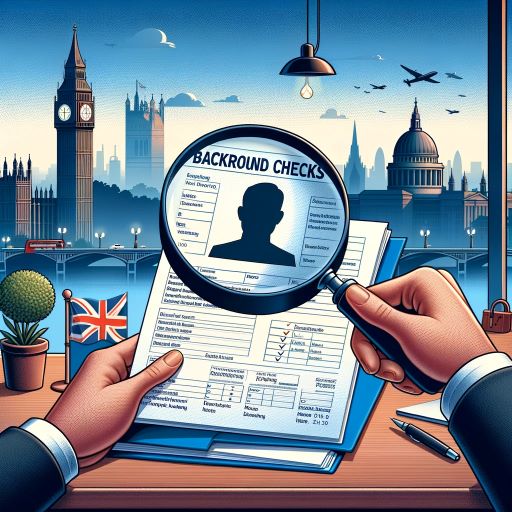

Cloud technology plays a pivotal role in the BPSS process by providing a centralized platform for storing and accessing data across different locations and devices securely. This facilitates seamless collaboration among HR, security departments, and external vetting agencies, making the process more efficient and less susceptible to delays caused by geographic and temporal barriers.
1. **International Background Checks:** Expect a growing emphasis on international screenings to guarantee thorough vetting for BPSS compliance.
Military personnel, from soldiers to strategists, also require BPSS clearance due to their access to classified military operations and strategic information. The clearance is essential to safeguard national security and operational integrity within the armed forces.
Civil servants in various departments, especially those dealing with defense, foreign affairs, and treasury, need BPSS clearance. Their roles potentially expose them to sensitive information that could affect the country’s governance and international standing.
For individuals seeking BPSS clearance, organizations may conduct additional inquiries to explore further into various aspects of their background and history. These additional investigations could involve checks on overseas travel history for periods exceeding 6 months within the last 3 years.
Ensuring you have all these documents in order will help streamline the verification process and increase the chances of successfully obtaining BPSS clearance.
Coordinating with overseas authorities for document verification and background checks adds another layer of difficulty, extending the time required for completion. Addressing inconsistencies or gaps in the information provided by the individual undergoing BPSS clearance may necessitate additional time and effort to resolve.
It's essential to be forthcoming with this information to facilitate a smooth and thorough BPSS clearance process.
Moreover, digital technology supports ongoing monitoring and updating of BPSS clearances. Once an individual has been vetted, their information can be continuously checked against updated databases for any changes that might affect their security status, such as new criminal records or changes in financial status, ensuring ongoing compliance with security standards.
1. BPSS clearance is usually valid for 3 years from the date of issue.
IT professionals working with government systems manage secure networks and data that, if compromised, could pose significant risks to national security. BPSS clearance ensures that those tasked with this responsibility are verified to be reliable and trustworthy.
As part of BPSS clearance, a basic criminal record check is conducted. This is generally quicker than more detailed checks, such as those performed for higher levels of security clearance, but can still be delayed if there are issues with the national criminal records database or if the individual has spent significant time overseas.


Unlike BPSS checks, DBS checks are required for positions involving contact with vulnerable groups, such as in teaching, healthcare, and social services. DBS checks are more detailed and can include checks on spent and unspent convictions, cautions, reprimands, and warnings held in the UK Police records, depending on the level of check required.
The role of BPSS clearance in maintaining public trust cannot be overstated.
Another key distinction is in ongoing monitoring and renewal requirements. BPSS does not have a formal ongoing monitoring or renewal policy; it is primarily conducted at the time of hiring. In contrast, BS7858:2019 requires that the screening process is updated every three years, or more frequently depending on company policy, to ensure that the security status of employees does not change over time.
By verifying your identity, legal right to work status, and employment history accuracy, organizations can establish a secure work environment and prevent unauthorized access to data. BPSS clearance is essential for individuals with access to government assets and sensitive information, as it confirms the honesty and integrity required for specific roles.
BPSS checks typically include four main elements: identity verification, employment history check, right to work confirmation, and a basic criminal record check. These components ensure that the individual is appropriately vetted for security-sensitive positions but do not delve into extensive criminal history unless necessary for the role.
To verify your employment history for BPSS clearance, make sure you have documentation such as PAYE records, HMRC tax records, payslips, P45, and P60. Vetting process These documents are essential in demonstrating your work experience and financial records.

Depending on the severity and nature of the crime, certain offenses may disqualify individuals from obtaining BPSS clearance. It's paramount to be transparent and disclose any unspent criminal records when applying for BPSS to uphold integrity. Individuals with unspent criminal records may face additional scrutiny or even be rendered ineligible for roles requiring BPSS clearance.
Generally, a BPSS check can take anywhere from two weeks to a month to complete. This timeframe assumes that there are no complications, such as discrepancies in the information provided or delays in receiving necessary documents from third parties.
Providing evidence of at least three years of employment history is an important requirement for BPSS clearance. HMRC tax records and National Insurance contributions can be used to validate your employment history.
Personal details, employment history, nationality, and criminal record information are needed for BPSS Clearance.